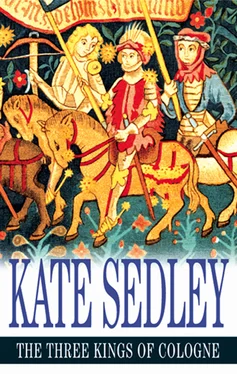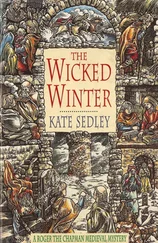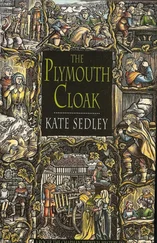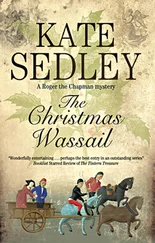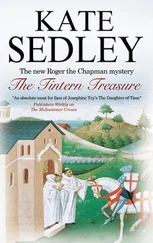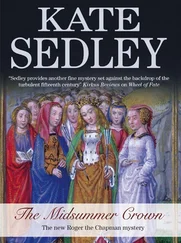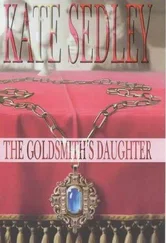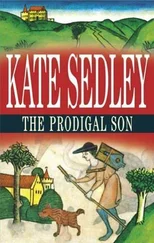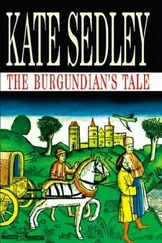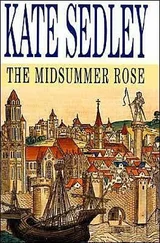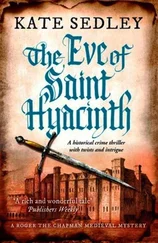Kate Sedley - The Three Kings of Cologne
Здесь есть возможность читать онлайн «Kate Sedley - The Three Kings of Cologne» весь текст электронной книги совершенно бесплатно (целиком полную версию без сокращений). В некоторых случаях можно слушать аудио, скачать через торрент в формате fb2 и присутствует краткое содержание. Жанр: Исторический детектив, на английском языке. Описание произведения, (предисловие) а так же отзывы посетителей доступны на портале библиотеки ЛибКат.
- Название:The Three Kings of Cologne
- Автор:
- Жанр:
- Год:неизвестен
- ISBN:нет данных
- Рейтинг книги:5 / 5. Голосов: 1
-
Избранное:Добавить в избранное
- Отзывы:
-
Ваша оценка:
- 100
- 1
- 2
- 3
- 4
- 5
The Three Kings of Cologne: краткое содержание, описание и аннотация
Предлагаем к чтению аннотацию, описание, краткое содержание или предисловие (зависит от того, что написал сам автор книги «The Three Kings of Cologne»). Если вы не нашли необходимую информацию о книге — напишите в комментариях, мы постараемся отыскать её.
The Three Kings of Cologne — читать онлайн бесплатно полную книгу (весь текст) целиком
Ниже представлен текст книги, разбитый по страницам. Система сохранения места последней прочитанной страницы, позволяет с удобством читать онлайн бесплатно книгу «The Three Kings of Cologne», без необходимости каждый раз заново искать на чём Вы остановились. Поставьте закладку, и сможете в любой момент перейти на страницу, на которой закончили чтение.
Интервал:
Закладка:
The Magdalen nuns had never been an enclosed order. (Indeed, there was a story told that during the Great Death of the previous century, several of their number had rowed themselves across the River Avon to take food and medicine to the inhabitants of Saint Bede’s Minster; or Be’minster as the locals always called it.) So the middle-aged Sister who answered my knock and inspected me through the grille of the door had little hesitation in letting me in when I expressed a wish to speak to Sister Walburga.
I was shown into a small, whitewashed room, boasting no furniture of any kind, and illuminated only by a single barred window set high in one wall.
‘Wait here while I find out if Sister Walburga is willing to speak to you,’ the nun instructed me, before going out and shutting the door noiselessly behind her.
Only a few moments had passed when I heard a light footfall in the passageway outside; then the latch was lifted and Sister Walburga came in.
Adela had been wrong about her. She was not the shy, retiring one. I could tell that at once by her face which was strong, almost masculine in feature. She was old and her sallow skin was deeply furrowed. Heavily incised lines ran from the outside of each nostril to the corners of her thin, nearly bloodless mouth, giving her a stern, forbidding expression. But the hazel eyes were bright and full of intelligence, and when she smiled it was easy to see that, in her youth, she had probably been a very handsome woman. Not pretty; I doubted she had ever been that, but with the stern good looks that frighten a lot of men.
She paused just inside the door, eyeing me up and down.
‘Who are you and what do you want with me?’ she demanded, wasting no time on formal greetings.
I answered both her questions as briefly as I could, guessing that she was the sort of woman to appreciate a concise, bare-boned narrative. When I finished, she said nothing for a moment or two, then gave a decisive nod of her head.
‘I’m grateful,’ she remarked at last, ‘that someone is taking it upon himself to discover what really happened to my cousin’s daughter. I have found the Sheriff’s officer, Sergeant Manifold, reluctant to pursue any investigation of the facts. I suppose I don’t altogether blame him. It’s twenty years since Isabella disappeared, and for all that time, we — myself, my cousin and, in the beginning, his wife — have assumed that she simply ran away with some man or other. She always had two or three dangling at her apron strings. But to my mind that is no excuse for not trying to find the culprit now that we know she was murdered. I shall write to Alderman Foster — Mayor Foster, I should say — and express my sincere obligation to him. As to you, my son, please accept my gratitude for being the instrument of this investigation.’ I thought she was looking a little dubious, so I gave her my best smile. She took a deep breath and continued, ‘So what is it you want from me?’
‘Whatever you can tell me concerning your … your cousin’s daughter, did you say?’
Sister Walburga inclined her head. ‘Jonathan Linkinhorne’s father and mine were brothers. Jon and I were never in each other’s pockets, as the saying is, but we played together as children and kept in touch when we were adults.’
‘And how well did you know Isabella? Well enough, obviously, to recognize the jewellery and girdle found with the body.’
‘Oh, they were all favourite pieces — the rings, the gold and amber necklace, the gold and silver girdle with its amethyst clasp. And as for the strip of cloth the workmen described seeing just before it crumbled into dust, Isabella had a green silk brocade gown she was very fond of and frequently wore.’
‘You saw her often?’
‘Often enough. My cousin and I were both only children. I never married, so Isabella was the only child of the family. Until I became a postulant here twenty years ago, I lived near Westbury village. Isabella would sometimes call on me when she rode that way.’
‘Your cousin seems to have had some expensive jewellery for so young a woman,’ I said. ‘Is Master Linkinhorne a rich man?’ If so, it seemed strange to me that he was now living in the Gaunts’ Hospital and not in the comfort of his own home, surrounded by his servants.
‘Cousin Jonathan? A rich man?’ Sister Walburga smiled. ‘Our family has never been a wealthy one, Master Chapman. We’re of solid yeoman stock, and proud of it. No, the jewellery came from one of Isabella’s admirers who was a goldsmith. A fact she let slip one day when I caught her off-guard.’
‘She was secretive?’
‘Oh, very! At least, where her various swains were concerned. And perhaps in other respects, as well. She appeared open and friendly enough, but I doubt if anyone, especially those closest to her, really knew what she was thinking, not even as a child. Mind you,’ my companion went on, suddenly moving away from the door and beginning to pace about the room, ‘it was easy to understand why. My cousin and his wife were both elderly when Isabella was born — Amorette, I think, must have been over forty, Jonathan even older — and they smothered her with love. The poor child was stifled with it from the moment of her birth. They watched over her every movement, supervised her every action until Isabella must have felt she couldn’t breathe. The only place she could hide was inside her own head, so the need for secrecy was probably engendered in her from a very young age. And when rebellion finally came, and Isabella defied her parents to go out riding every day, sometimes all day, she would never tell them where she’d been or who she’d seen. The habit of silence was too inbred in her by then.’
‘Surely her father could have enforced her obedience?’
Sister Walburga shook her head.
‘My cousin would never have lifted a finger against Isabella. He and Amorette doted too much on her. Along with the all-embracing love went a desire to give first the child and then the girl everything she wanted; everything her heart desired. Isabella grew up spoiled, wilful and wild.’ My informant paused, chewing her bottom lip and looking pensive. ‘You know, Master Chapman,’ she continued after a minute, ‘love can be ugly and destructive as well as beautiful and life-giving. If you have children of your own, never forget that.’
‘I’ll try not to,’ I promised. ‘I’ve been told that Master Linkinhorne and his family lived in the manor of Clifton.’
‘Yes. He and his wife ran, very successfully, a smallholding which they held in tenure from the lord of the manor, Lord Cobham. It was a quarter of a mile or so from Ghyston Cliff, above Rownham Passage. The place is derelict now. It was gutted by fire some years ago. An accident, my cousin said, when a candle flame caught the edge of his bed hangings. Jonathan was old and lonely by then — Amorette had been found drowned in the Avon a year after Isabella’s disappearance — and growing careless. Lord Cobham used his influence to obtain a place for my cousin in the Gaunts’ Hospital, but he never rebuilt the house.’
I thought over all she’d told me, then asked, ‘Did it never cross Master Linkinhorne’s or his wife’s minds that any harm might have befallen their daughter? Was no sort of effort made to find her?’
‘Half-hearted ones. Oh, I realize it must seem very reprehensible to you now, now that we all know the truth of what really happened. But everyone, including myself — I take equal blame — was convinced that Isabella had run off with a man.’
‘But who were these men?’ I demanded impatiently. ‘I’ve heard talk from other sources of three. Surely enquiries could have been put afoot to discover if Isabella had indeed run off with one of them.’
Читать дальшеИнтервал:
Закладка:
Похожие книги на «The Three Kings of Cologne»
Представляем Вашему вниманию похожие книги на «The Three Kings of Cologne» списком для выбора. Мы отобрали схожую по названию и смыслу литературу в надежде предоставить читателям больше вариантов отыскать новые, интересные, ещё непрочитанные произведения.
Обсуждение, отзывы о книге «The Three Kings of Cologne» и просто собственные мнения читателей. Оставьте ваши комментарии, напишите, что Вы думаете о произведении, его смысле или главных героях. Укажите что конкретно понравилось, а что нет, и почему Вы так считаете.
